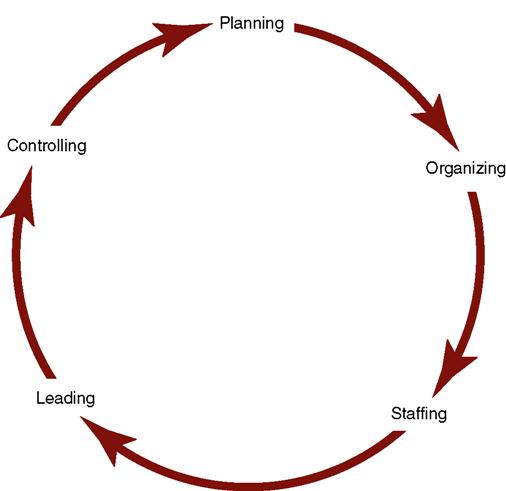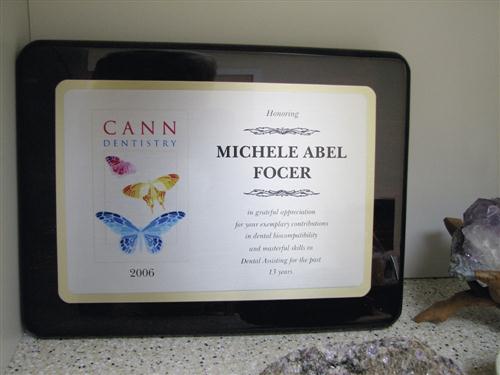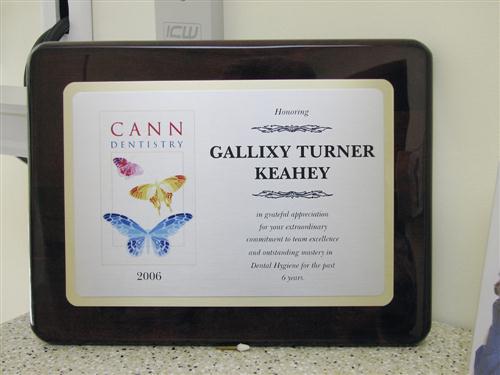Dental Team Management
LEARNING OUTCOMES
ESTABLISHING PRACTICE GOALS AND OBJECTIVES
Before opening a dental practice, the dentist should define a practice philosophy, establish specific objectives, and determine a mission statement for the practice. A lack of goals and objectives results in lack of direction for the dentist and staff and may result in poor relationships with patients. As the practice grows, these goals and objectives will need to be revised and the mission statement updated. It is vital that the dentist in a healthcare practice seek input from the staff when establishing these objectives.
A common sequence for establishing objectives includes the following steps:
• Develop practice policies. These are statements of basic policy that will affect both staff members and patients. These statements may be covered by broad headings, followed by specific policies. It is wise to share these with the patients as shown in the office policy in Chapter 3 and with the staff as shown in the procedural manual later in this chapter.
• Develop a practice standard. It is necessary for the dentist to identify a quality standard that defines a self-performance level and performance level expected of the staff. The dentist should provide for the staff an explanation of how this standard is to be maintained. Plans should be made about how to periodically validate that this practice standard is being met.
As a dentist and staff work through the development of objectives for the practice, these objectives become rules by which the office is managed. As the practice expands and new technology is developed, it will be necessary to review and revise these goals and objectives. Most important in participatory management is the involvement of the entire dental team in the development of these objectives.
• Develop a staff recognition program. As stated, the staff is the greatest asset a dentist can have in the office. Specific guidelines should be established for hiring a qualified staff, selecting a wide range of creative benefits, and establishing a competitive salary scale that reflects productivity and cost-of-living increases. Most employees work hard if they are compensated well and recognized for their efforts. However, a common complaint of dental assistants is lack of recognition. An employee must be given challenging responsibilities, and salaries must be commensurate with the accomplishment of these responsibilities. Frequent thank-yous help to improve rapport, but don’t overlook profit sharing, gift certificates, and travel as real incentives in a recognition program. A certificate displayed in the treatment room as shown in Figure 2-1 illustrates one method of staff recognition for outstanding performance.
BUSINESS OFFICE ETIQUETTE
Office etiquette refers to business manners. Rules that applied to social graces 25 years ago or even 10 years ago may no longer work in our society. Many former rules of etiquette were formal and rigid and often do not apply to the more casual lifestyles of today’s society. Yet in a professional business office, the fact still remains that one’s actions and behavior are observed by clients, patients, visitors, and those who have the potential to promote.
For a dentist employer, the potential for practice growth and patient acceptance depends on the etiquette of the staff. Good manners can lead to promotions over equally qualified persons with less poise; create a self-confident, successful, professional person; help professionals handle their superiors; and lessen awkwardness among people. They are essential to building good relationships. Specific applications of etiquette are applied to different phases of business activities in many of the ensuing chapters.
Etiquette or the application of good manners can be applied to daily interactions with each member of the staff as well as all of the patients. Good etiquette must be practiced on a daily basis, and it cannot simply be turned on and off when patients are around. The statement “Good manners begin at home,” can be adapted to the dental office by remembering that good manners begin with the staff. The failure to promote good manners with each other can be detrimental. Employers subconsciously take the pulse of relationships among their employees and staff, and if such readings reveal poor relationships among the staff and patients, action needs to be taken to modify this behavior to ensure the success of the practice. Furthermore, as discussed later in this chapter, poor relationships relate directly to productivity. Box 2-1 lists several suggestions for implementing good professional business etiquette.
THE SHIFTING ROLE OF THE ADMINISTRATIVE ASSISTANT
For many years the administrative assistant’s role has been defined by various terms, including secretary, receptionist, business assistant, and even front-desk person. Many of these titles are still used today, but the changing role of this important staff person shifts the title to a more appropriate one of administrative assistant. The duties of the administrative assistant are varied and may be assigned at different levels. As the dental team expands, the dentist is likely to delegate more management duties to the administrative assistant. In a large dental practice, a dentist may employ several staff members in the business office, each with separate responsibilities as an administrative assistant, receptionist, insurance manager, and data clerk. However, in a smaller practice, these duties may be delegated to one person. The administrative assistant title in this text refers to the person whose primary responsibility involves business activities of the dental office. In general, the duties of an administrative assistant include many of the tasks identified in Box 2-2.
STAFF MANAGEMENT
The term management was defined in Chapter 1, but now as this chapter looks more specifically at the business office, realize that management in the dental office may be defined as the process of getting things accomplished with and through people, by guiding and motivating their efforts toward common objectives.
Some people say, “Managers are born, not made.” However, managers can nurture their natural skills into sound management skills through experience, effort, and learning. As a person advances into an administrative position, he or she will make mistakes, but remember that learning comes from mistakes as well as successes.
The Five Rs of Management
Successful management can be attributed to five basic Rs: responsibility, respect, rapport, recognition, and remuneration.
An employee should be delegated all tasks that are legally delegable and for which he or she is properly qualified. Employees cannot work to achieve their maximum productivity if they feel they are not given responsibility for which they are answerable. Responsibility denotes duty or obligation. It also denotes follow-through and completion of a project. An employee who is to become a valuable member of the dental health team must be delegated responsibility. If responsibility is withheld, then it is assumed that the administrative assistant or employer does not feel the employee is capable of the task, and concern should be given for retaining this employee.
Respect is consideration or esteem given to another person. Each member of the dental health team must respect the others’ education, skills, and values. To not have respect indicates a lack of confidence and again reflects a poor attitude toward another person’s capabilities. Each member has a major role on the team and should possess expert skills and credentials that warrant respect.
Rapport is a mutual trust or emotional relationship that exists among the office staff members. Each dentist sets the tone for the rapport in the office. A good rapport in the office is effused to the patients who recognize how well the team members work together during tense times and how they enjoy each other’s professional friendship.
Recognition is achievement. A person can be recognized for a task well done or for special achievements. Recognition can come in the form of verbal praise or a sign placed in the office recognizing employment and credentials.
Remuneration is a monetary recognition of achievement. Most employees say that they are willing to work hard if they are compensated for their efforts. Remuneration should be based on education, merit performance, longevity, and cost of living. Dentist employers who affirm that their employees have worked with them for many years, with repeated job satisfaction reviews, are those who delegate responsibility; create good rapport in the office; respect, trust, and recognize their employees; and provide compensation commensurate to other small business and allied health employment.
Functions of an Administrative Assistant
The basic functions of an administrative assistant in a dental office are shown in the schematic drawing in Figure 2-2. Some assistants may interpret this diagram to mean that their job is “a vicious circle.” In actuality many of these functions overlap, and the basis for each depends on planning. Sound planning before beginning an activity may eliminate the need for crisis management, or handling one crisis after another.

Planning is identifying what is to be done in the future. The goals and objectives discussed earlier are vital to planning. The administrative assistant will be involved in long-range planning as well as daily planning.
Organizing is determining how the work will be divided and accomplished by members of the dental team. After procedures have been identified and tasks enumerated for each procedure, the administrative assistant is required to assign the duties to specific staff members. It is essential that the dentist give this authority to the administrative assistant. Without this authority, the administrative assistant cannot manage effectively.
Staffing includes the recruiting, selecting, orienting, promoting, paying, and rewarding of employees. Cooperation between staff members will be necessary as new employees are integrated into each technical area of the office. Staffing also involves instructing, evaluating, and educating employees and providing opportunities for their future development. Additionally the business administrative assistant is responsible for recommendations of an appropriate system of pay and benefit package.
Leading involves directing, guiding, and supervising the staff in the performance of their duties and responsibilities. It consists of exercising leadership; communicating ideas, orders, and instructions; and motivating employees to perform their work effectively and efficiently. This is really the “people” function of management.
Controlling is the function of management that deals with determining whether or not the plans are being achieved and, when necessary, making decisions to modify the plans to achieve the specific objective.
Basic Skills of an Administrative Assistant
At this point one may wonder what basic skills are required to function as an administrative assistant and perform the administrative role effectively. Although many skills are needed, a few of the most important ones are the following:
The relative importance of these skills varies according to the type of office; the type of practice, whether it is a specialty or general practice; the job being performed; and the staff being managed.
Conceptual skills involve the ability to acquire, analyze, and interpret information in a logical manner. These skills help to put an idea or concept into perspective and perceive how this idea would affect the whole practice.
Human relations skills aid in understanding people and allow effective interaction with them. These skills are vital in a health profession and involve communication, motivation, and an ability to lead.
Administrative skills are those that help you to use all of the other skills effectively in performing administrative functions. These include the ability to establish and follow policies and procedures, process paperwork in an organized manner, and coordinate activities in the office.
Technical skills include understanding and being able to supervise effectively the specific processes, practices, and techniques required of specific jobs in the business office. This is the use of all of the knowledge of dentistry and business that allows the performance of day-to-day operations in the office.
The Ethical Administrative Assistant
In addition to the basic skills the administrative assistant should possess, the professional attitude and ethics of this person have a significant influence on the staff. The following suggestions may identify some attributes of an ethical, caring administrative assistant:
STAFF COMMUNICATION
Communication is an essential element in management and becomes a vital link in establishing a meaningful relationship among the administrative assistant, the dentist, other members of the staff, and the patient. The basic definition of communication is to understand and be understood by a/>
Stay updated, free dental videos. Join our Telegram channel

VIDEdental - Online dental courses




 Practice Note
Practice Note Practice Note
Practice Note